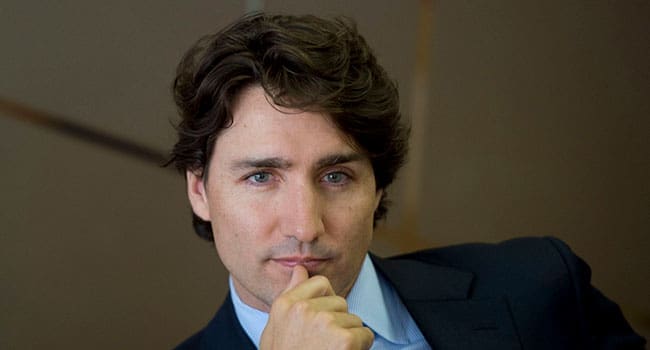By Jason Clemens
and Niels Veldhuis
The Fraser Institute
Canadians should hope the clear parallels between U.S. President Barack Obama and Prime Minister Justin Trudeau don’t translate into economic performance.
The parallels between the two-term president and Canada’s new Liberal prime minister range from superficial (campaign slogans) to substantive (focus on redistribution, increased government spending and higher taxes).
Given the commitment of Trudeau’s government to evidence-based policy, the Liberals should recognize the failures of the Obama administration’s approach and make necessary changes as they prepare to govern.
Like the Trudeau Liberals, Obama has often talked about the need to improve economic growth. Unfortunately, more often than not, the president chose policies of redistribution rather than growth. Instead of encouraging entrepreneurship, investment and business development, which are the basis for a growing, prosperous economy, Obama chose to redistribute existing income and wealth.
Stanford University economist John Taylor has done substantial work linking Obama’s policies of redistribution, higher taxes, and more government spending (financed by deficits) with slow economic growth. His analysis concludes that the U.S. has suffered from the weakest economic recovery in modern history. Compare the current recovery, for instance, to the recovery in the early 1980s from the last deep recession. Average economic growth in the quarters following the end of the recession (quarter one of 1983) to 1986 was 5.3 percent. Over a comparable period since the end of the Great Recession (2009), average economic growth was 2.1 percent, less than 40 percent of the average growth enjoyed in the 1980s.
One of the central pillars of the Liberals’ fiscal policy, like that of Obama, is to increase taxes on high-income earners. The Liberals promised to increase the personal income tax rate on earnings above $200,000 from 29 to 33 percent. This means Canada will have the third highest personal income tax rate among the industrialized countries, according to the Organization for Economic Co-operation and Development (OECD).
Such a change will have the same effects on Canada as it did on the U.S. It will discourage entrepreneurs, professionals and business owners from investing, starting or expanding their businesses, while encouraging them to spend time and resources finding ways to avoid paying higher taxes. This is not the recipe for a prosperous economy.
The Liberals have also committed to capping the use of stock options. Like a number of changes introduced by Obama, this measure brings in very little revenue but imposes serious costs on the economy. Stock options are a critical compensation mechanism used by startups that are normally cash-starved. Stock options allow such companies to increase the potential compensation for employees without draining cash, since the rewards are offered in the future if the company is successful. Capping such measures means that Canadian companies will be at a further disadvantage to attract and retain the very people they need to succeed – such as engineers, computer programmers and experienced managers. This will have a significant negative impact on Canada’s burgeoning high-tech industry, which is more mobile than traditional industries.
Obama has been widely criticized for often implementing contradictory and even competing policies. The Liberals’ campaign commitment to reduce the small business tax rate from 11 to 9 percent, while popular, has many unintended consequences that will reduce economic growth. For instance, the gap between the general corporate tax rate (15 percent) and the small business rate will widen, encouraging companies to stay small to avoid the much higher tax rate.
In addition, the reduction in the small business tax rate will strengthen the incentive for middle- and high-income earners to transform their labour income to business income. This will allow them to avoid the higher personal income taxes planned by the Liberals while enjoying a lower business tax rate.
This is exactly what Trudeau complained about during the recent federal election campaign when he referred to the wealthy using small businesses as tax shelters, which is ironic since the policies advocated by his party will make this worse, not better.
It should be clear from the Obama presidency that the Liberals must choose pro-growth policies over redistribution. The former will result in a more prosperous economy characterized by growing incomes, lower unemployment and opportunities to progress. The feeble recovery in the U.S. shows the result of the latter policy.
Jason Clemens and Niels Veldhuis are economists with the Fraser Institute.
Jason and Niels are Troy Media contributors. Why aren’t you?
The views, opinions and positions expressed by columnists and contributors are the author’s alone. They do not inherently or expressly reflect the views, opinions and/or positions of our publication.




